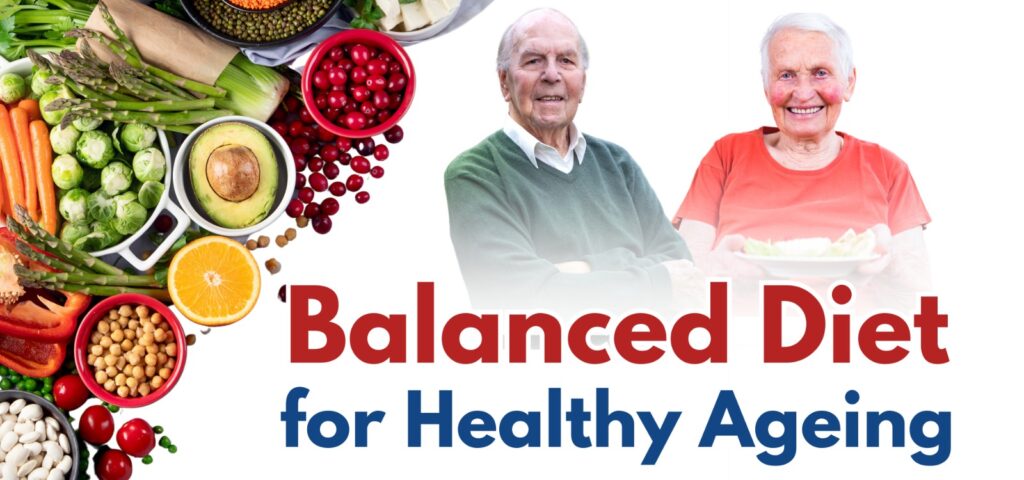As we age, our nutritional needs evolve. A balanced diet plays a pivotal role in supporting physical and mental well-being, boosting immunity, and managing chronic conditions. At Dr. Prasun Chatterjee’s clinic, we advocate for proactive lifestyle changes that promote healthy ageing—and diet is at the core of that journey.
Why Diet Matters for Healthy Ageing
With age, the body’s metabolism slows down, muscle mass declines, and the risk of nutrient deficiencies increases. A well-planned, nutrient-rich diet helps seniors maintain energy levels, prevent disease, and stay independent longer. More than just managing symptoms, good nutrition is about enhancing quality of life.
Prioritize Nutrient-Dense Foods
As calorie needs decrease, nutrient needs remain high. Choose foods that pack a nutritional punch without being high in empty calories.
- Include: Leafy greens, colorful vegetables, berries, whole grains, lean proteins, legumes, and nuts.
- Limit: Sugary snacks, processed foods, and fried items.
These choices support the body’s functions and reduce the risk of age-related diseases, making them essential for healthy ageing
Boost Protein Intake
Aging naturally leads to muscle loss, known as sarcopenia. Including sufficient protein helps preserve muscle mass and strengt
Stay Hydrated
Older adults often experience a reduced sense of thirst, increasing the risk of dehydration.
- Drink at least 6–8 glasses of water a day.
- Herbal teas, soups, and fruits like watermelon or cucumber can contribute to fluid intake.
Proper hydration supports digestion, joint health, and brain function—essential elements of healthy ageing
Focus on Bone Health
Bone density tends to decline with age, increasing the risk of fractures and osteoporosis.
- Calcium-rich foods: Milk, yogurt, cheese, almonds, and leafy greens.
- Vitamin D: Sunlight exposure and supplements (if recommended) help improve calcium absorption.
Strong bones are fundamental to mobility and independence in later life
Watch the Salt and Sugar
Excess salt increases blood pressure; excess sugar can lead to weight gain and diabetes.
- Cook with herbs and spices instead of salt.
- Choose natural sugars from fruits rather than processed desserts.
Balanced sodium and sugar levels contribute to cardiovascular health—another pillar of healthy agei
Eat Small, Frequent Meals
For seniors who experience a loss of appetite or digestive issues, smaller meals more frequently can help meet nutritional needs without discomfort.
- Include a balance of protein, healthy fats, and fiber in each mini-meal.
- Avoid skipping meals, which can lead to energy crashes or nutrient deficits.
Plan with Your Doctor or Dietitian
At Dr. Prasun Chatterjee’s practice, we believe that personalized dietary advice can make a big difference. Schedule a consultation to review your current habits, assess deficiencies, and create a tailored meal plan for lifelong wellness.
Final Thoughts
Good nutrition is not about perfection—it’s about making consistent, positive choices that support your health over time. A balanced diet, along with regular physical activity, social engagement, and medical support, forms the foundation of healthy ageing. For expert guidance and geriatric care built around your needs, visit Dr. Prasun Chatterjee and take the first step towards a longer, healthier life.

